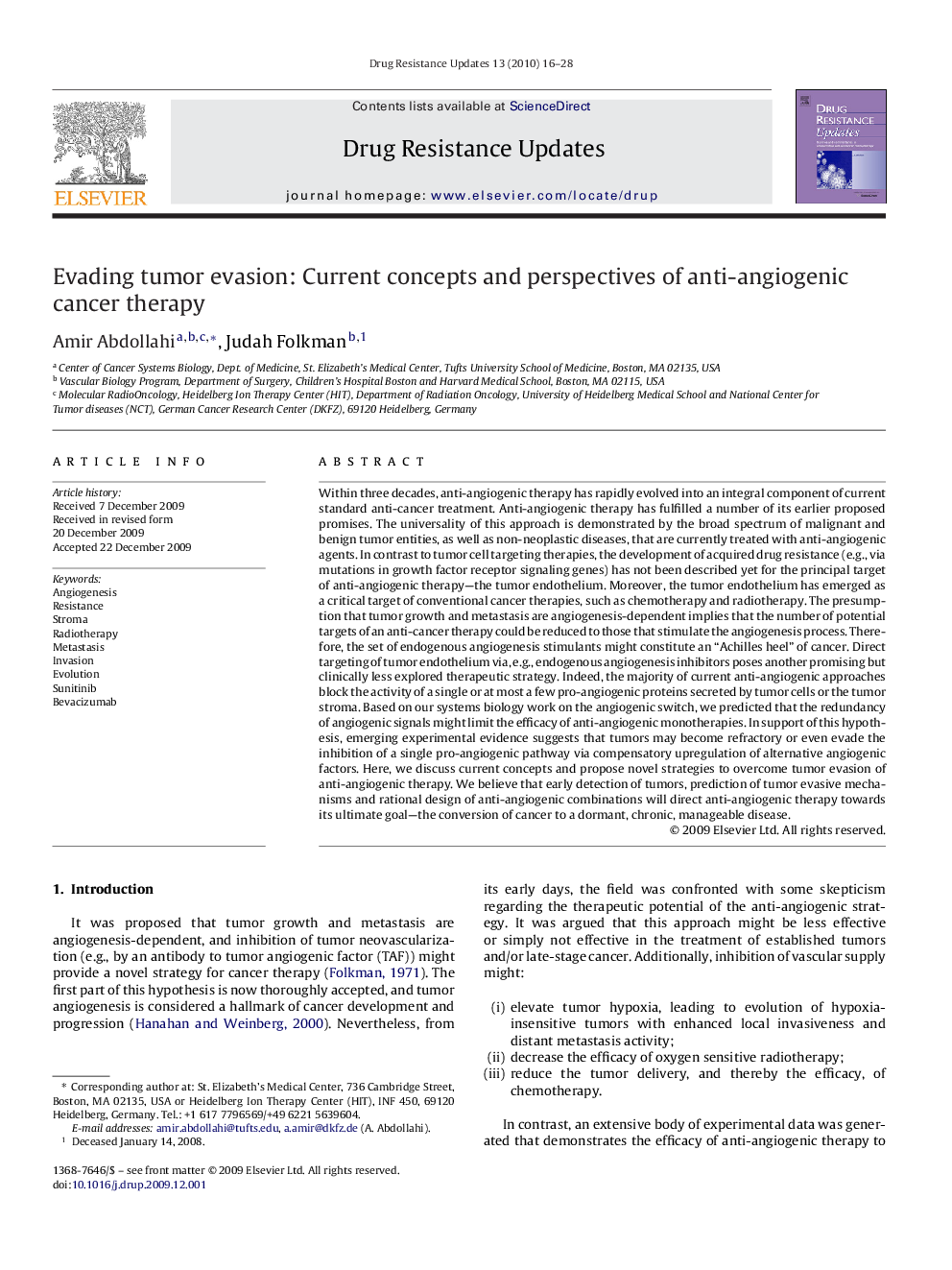| کد مقاله | کد نشریه | سال انتشار | مقاله انگلیسی | نسخه تمام متن |
|---|---|---|---|---|
| 2120468 | 1546853 | 2010 | 13 صفحه PDF | دانلود رایگان |

Within three decades, anti-angiogenic therapy has rapidly evolved into an integral component of current standard anti-cancer treatment. Anti-angiogenic therapy has fulfilled a number of its earlier proposed promises. The universality of this approach is demonstrated by the broad spectrum of malignant and benign tumor entities, as well as non-neoplastic diseases, that are currently treated with anti-angiogenic agents. In contrast to tumor cell targeting therapies, the development of acquired drug resistance (e.g., via mutations in growth factor receptor signaling genes) has not been described yet for the principal target of anti-angiogenic therapy—the tumor endothelium. Moreover, the tumor endothelium has emerged as a critical target of conventional cancer therapies, such as chemotherapy and radiotherapy. The presumption that tumor growth and metastasis are angiogenesis-dependent implies that the number of potential targets of an anti-cancer therapy could be reduced to those that stimulate the angiogenesis process. Therefore, the set of endogenous angiogenesis stimulants might constitute an “Achilles heel” of cancer. Direct targeting of tumor endothelium via, e.g., endogenous angiogenesis inhibitors poses another promising but clinically less explored therapeutic strategy. Indeed, the majority of current anti-angiogenic approaches block the activity of a single or at most a few pro-angiogenic proteins secreted by tumor cells or the tumor stroma. Based on our systems biology work on the angiogenic switch, we predicted that the redundancy of angiogenic signals might limit the efficacy of anti-angiogenic monotherapies. In support of this hypothesis, emerging experimental evidence suggests that tumors may become refractory or even evade the inhibition of a single pro-angiogenic pathway via compensatory upregulation of alternative angiogenic factors. Here, we discuss current concepts and propose novel strategies to overcome tumor evasion of anti-angiogenic therapy. We believe that early detection of tumors, prediction of tumor evasive mechanisms and rational design of anti-angiogenic combinations will direct anti-angiogenic therapy towards its ultimate goal—the conversion of cancer to a dormant, chronic, manageable disease.
Journal: Drug Resistance Updates - Volume 13, Issues 1–2, February–April 2010, Pages 16–28